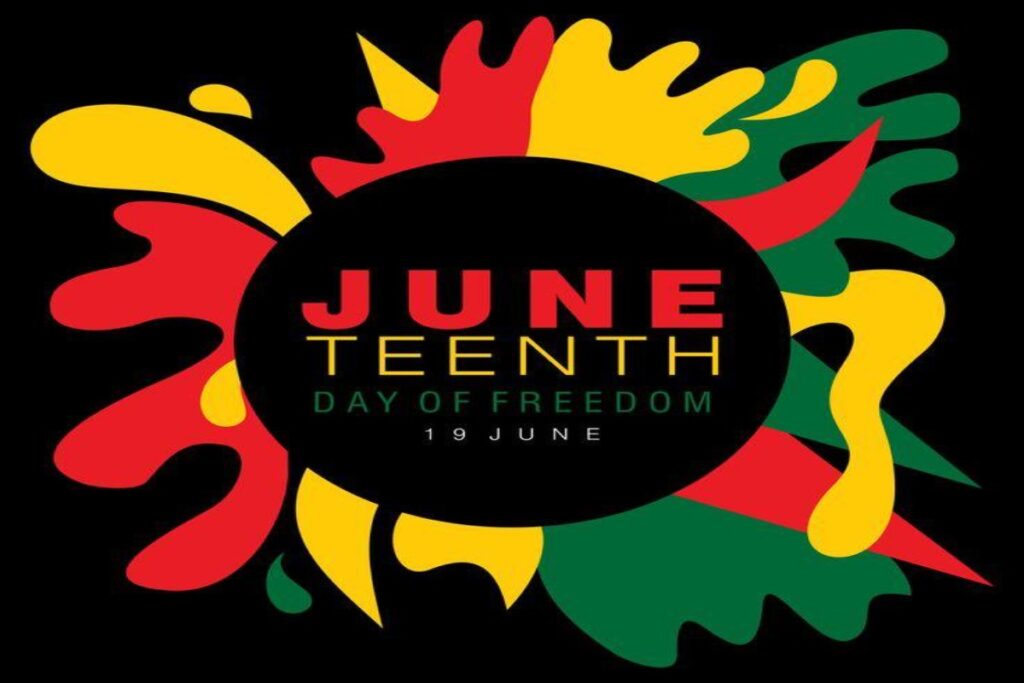Juneteenth, or Freedom Day, is a holiday dedicated to the liberation of African people from slavery in the United States. It has been celebrated on June 19th since 1865 when Union General Gordon Granger made this proclamation in Galveston, Texas.
Juneteenth has become a cultural celebration of the freedom of African Americans, and it allows families to restore their lost lineage.
Uncovering Hidden Roots
As is known, genealogical research may be a difficult endeavor for many African American families. Due to the transatlantic slave trade and segregation laws, families found it hard to keep track of their genealogy.
The Juneteenth celebrations allow families to sit down and share experiences, discover new origins, and construct family trees.
Tragic Tales
Documents describing the exchange of ancestors are being uncovered by families, and these discoveries are telling tragic tales of families ripped apart. Understanding one’s roots and the tenacity of those who came before requires understanding these emotional yet important findings.
The story doesn’t end with captivity, many people are discovering accounts of people who were freed and who went on to rebuild their lives. Besides, these inspirational tales of fortitude and survival give family history a deeper depth and provide a more comprehensive picture of the lives of their ancestors.
Reclaiming Cultural Heritage
Juneteenth is not only about freedom, but it is also about culture. It incorporates songs, dance, food, and other activities that depict Africans who were enslaved in America. Through having families practice their cultural traditions, they can regain their roots and respect their forefathers.
Texas has always celebrated Juneteenth with colorful parades honoring Major General Gordon Granger’s declaration of emancipation. Driven by a shared sense of hope and remembering, this custom of parades, cookouts, and music keeps expanding.
ALSO READ: Archaeologists Make Eerie Discovery Near Ancient 800-Year-Old Shipwreck
Preserving Family Recipes
African American people share an emphasis on food and family recipes, and Juneteenth celebrations are no exception. Again, traditional recipes are being swapped and passed down meaning that the younger generations are still benefiting from the knowledge of their forefathers.
However, this culinary history is not only the history of African Americans but also a way to pay tribute to the strong will of the enslaved people who survived with the help of food.
Honoring Ancestors
Juneteenth allows families to celebrate their ancestors who were enslaved and who fought for their liberation.
Thus, by understanding their problems and efforts, families can comprehend the experience of slaves and further consequences in their lives. This honoring of ancestors can play a role in the healing of different psychological injuries.
POLL—Should the U.S. Government Create a Path to Citizenship for Undocumented Immigrants?
Sharing Personal Stories
Families can recount personal stories and lively experiences that have been handed down from one generation to the other on Juneteenth. Such stories contain components such as hardships, achievements, and rituals of the African American people.
Additionally, families can pass down their history and keep traditions alive for future generations to come.
Reclaiming Lost Names
During slavery, most Africans who were enslaved were given new names by their masters. Juneteenth parades are helping families to restore their traditional names and bring back forgotten traditions.
This process of renaming enables the families to get back their identity and dignity.
Connecting With Community
Juneteenth is not only about people’s family stories; it is also about identity and a shared African American experience.
In addition, families are congregating in large numbers to come together and be one with their families and loved ones. This feeling of community is crucial in the process of rehabilitation.
Embracing Multicultural Heritage
It embraces the cultural heritage of African people who were brought into the United States via the middle passage.
Also, to embrace their cultural diversity, families are integrating traditional music, dance, and art originating from several African nations into festivities.
WATCH: Archaeologists Unearth Temple Challenging History of Christianity in the Roman Empire
Intergenerational Connections
Juneteenth can also foster intergenerational interactions where young people spend time with the elders in their families.
These narratives are stories and information that have been passed from the previous generations to the children. Also, this intergenerational connection is useful in passing down family and cultural information.
Community Service
Most events focus include volunteer work in the form of food drives, clean-up campaigns, and health fairs.
These projects reunite families while also helping others in their communities. This sense of social responsibility is, in fact, characteristic of the African American people.
Cultural Exchange
Juneteenth is not only a celebration of African American heritage, but it also allows for the sharing of cultures with other groups of people. People are educating other people about their traditions and customs, thus increasing cultural tolerance.
However, families are ensuring that their history is documented for future generations to learn about. They are recounting the stories of their ancestors’ victories and adversities, and they are making sure that those stories remain relevant.
You Might Also Like:
Regina King Reveals Emotional Truth About Son Ian’s Passing
Las Vegas Locals Complain That New Residents Are Ruining the City
Kyle Rittenhouse Sparks Outrage With Gay Message
Advocates Worry Reparations Have Become a Target for Conservatives in Illinois
IRS Projects $50 Billion as It Proposes Closing Another Tax Loophole
